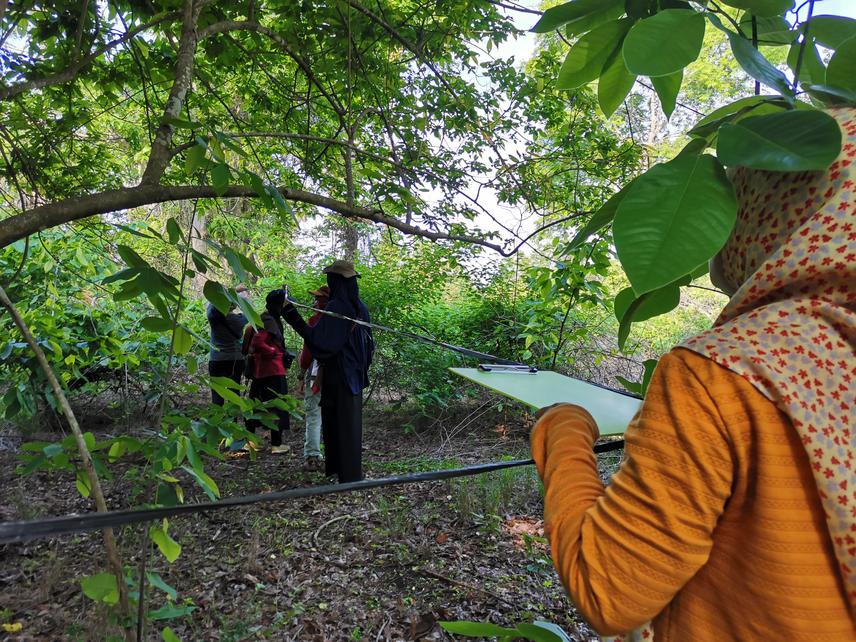Marsya Christyanti Sibarani
Indonesia has high biodiversity, but it is threatened by a rapid rate of species extinction and habitat destruction. Therefore, knowledgeable and skilful conservationists are urgently needed to preserve Indonesian biodiversity. “Conservation Camp” is a training program which aims to improve the knowledge and skills of students and young conservationists to aid biodiversity conservation in Indonesia. A maximum of selected 20 students and young conservationists from across Indonesia will be invited to attend a 10-day training in Bali Barat National Park, Bali. The camp will provide comprehensive combination of theoretical classes, hands-on field experience, thematic talks, career coach, and research simulation.

To preserve the legacy of Indonesia’s rich biodiversity, early-career conservationists must be armed with relevant practical skills and be knowledgeable. However, the current formal conservation education at universities in Indonesia does not adequately address the needs of early-career conservationists. We aim to address this gap by conducting a Conservation Camp, a 10-day training camp aiming to enhance capacity building of young generation in Indonesia as future leaders in biodiversity conservation.
Conservation Camp is divided into three main components:
1. Mini-research
We will conduct several mini-projects which cover ecological and sociological aspects of conservation. As a part of mini-research, we will give trainings on research design, survey methods, and data analysis. We will also introduce how to use R for data visualisation and data analysis. The final component of the mini-research is to publish the selected research topic as an oral presentation in a simulated conference.
2. Career Development
To help participants better understanding different career pathways in conservation, we will invite speakers from four different types of institutions, i.e. academics, NGO, government, and the private sector, to present the contribution of their work for biodiversity conservation.
3. Thematic Talks
In addition to mini-research and career development, we will also hold discussions which cover various themes in conservation to enrich their knowledge and broaden their perspectives. This part aims to introduce conservation issues which involve multiple disciplines, but usually are not covered in formal education.
Post-camp activities include:
1. Conservation Event: The participants are assigned to organise a talk, a workshop, or a small studying group in their home city/university which aims to share the skills and knowledge they have gained during the camp.
2. Mentoring: The mentoring groups will hold bimonthly online meetings to discuss the progress of the participant’s studies or career and any topics that they think relevant to the participants’ work.
3. Assessment: We will conduct surveys to assess the impact of the camp and online mentoring.
The expected output of Conservation Camp is the increased knowledge and skills of participants in matters relating to conservation. The curriculum of the Conservation Camp is designed so that the participants will be able to learn how to conduct research in conservation, which will increase the quality of scientific oversight of conservation projects, improve the quality of conservation outputs, and increase the overall capacity of Indonesian conservationists.